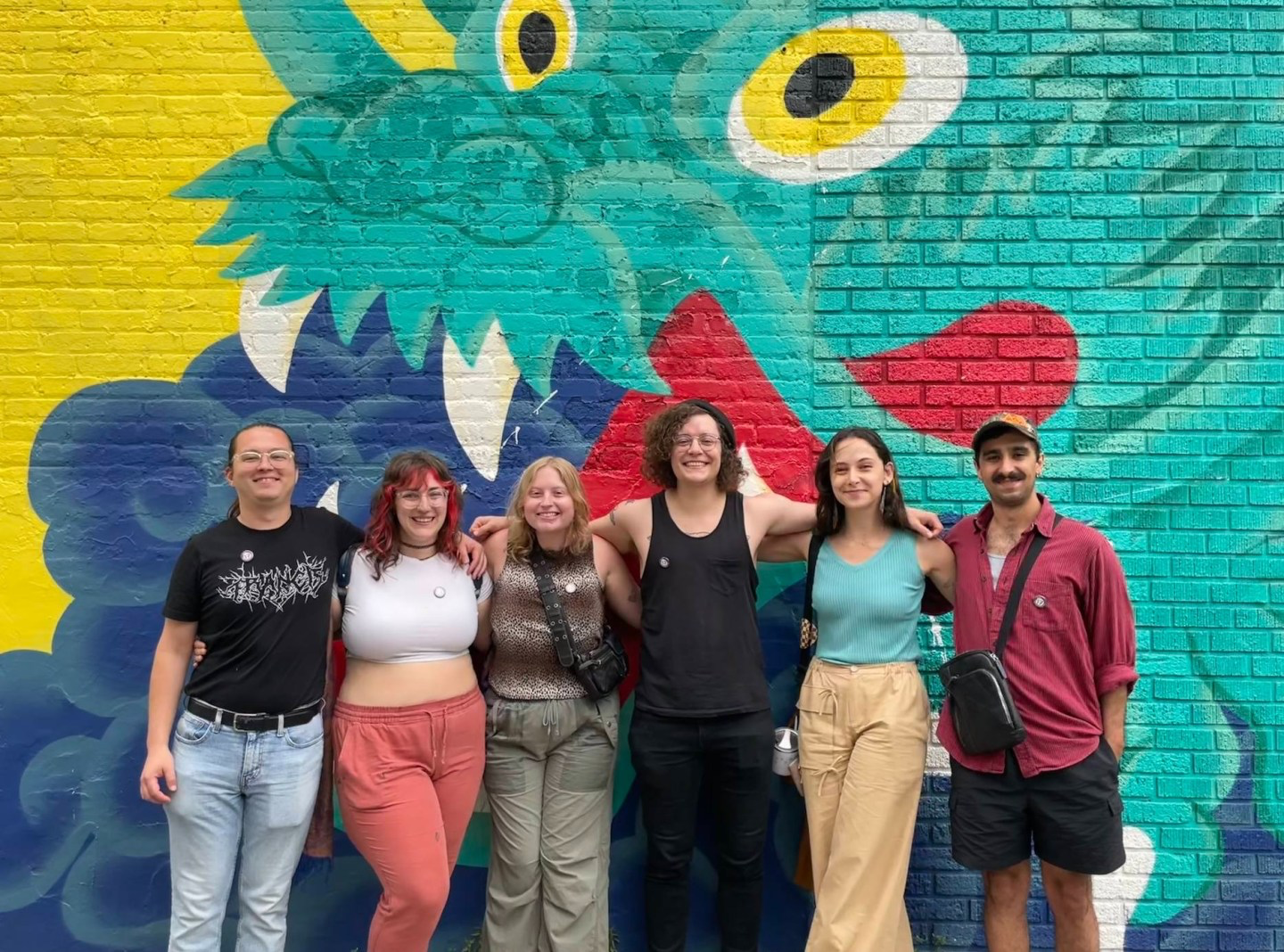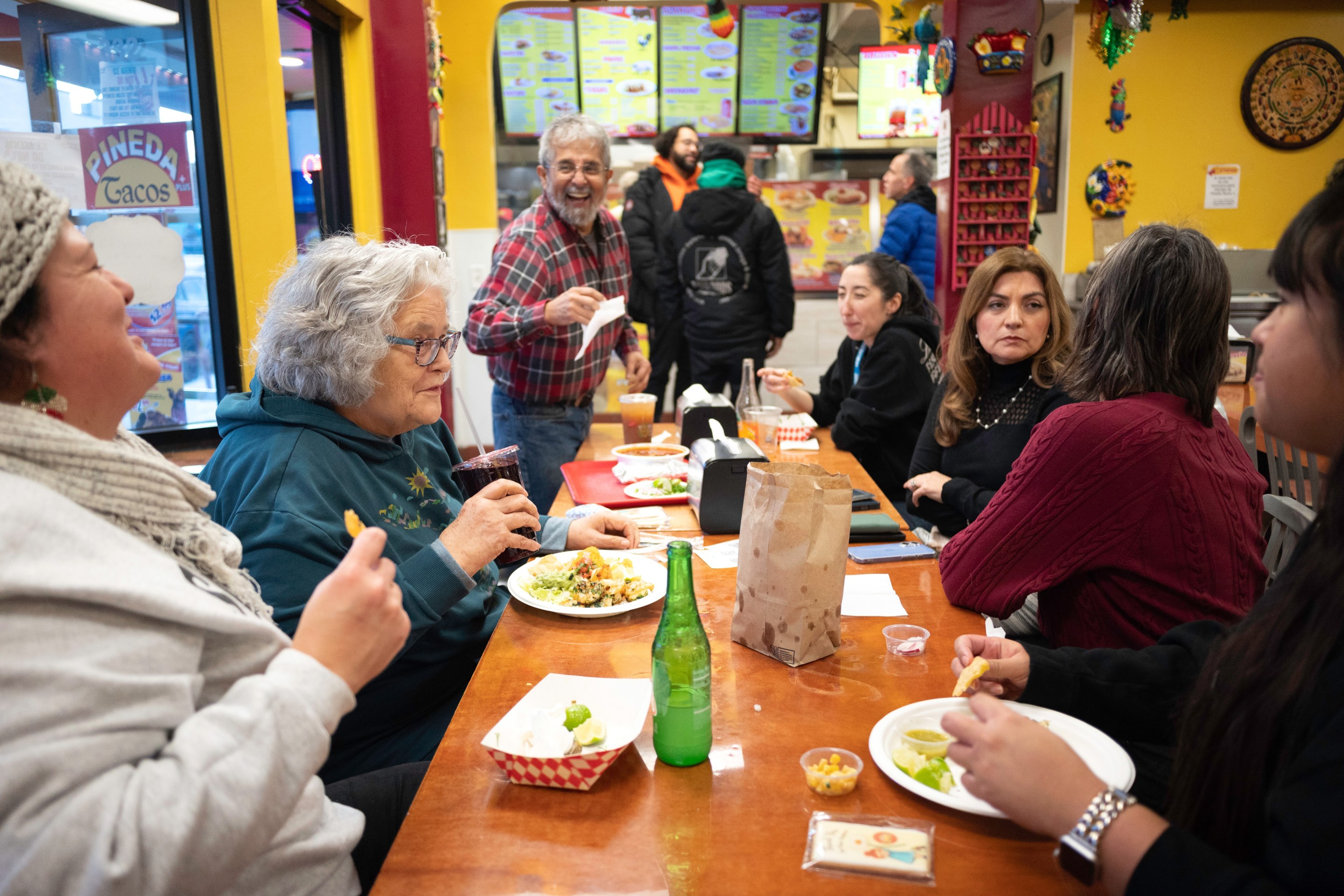Welcome back to The Flyover, your daily digest of important, overlooked, and/or interesting Minnesota news stories.
What's the "Minnesota Model"?
Sarah Jaffe's In These Times feature story, "The Minnesota Model Is Transforming Organizing as We Know It," is long as hell, but also compelling, opening with striking Minneapolis Park and Recreation workers confronting the board this summer and touching on the union efforts everywhere from First Avenue to Kim's in Uptown.
"Many of the people I spoke to call it the 'Minnesota Model,'" Jaffe writes. "It’s a commitment to the principles that 'we can win more together than we can on our own' and that the working class has many needs that are not being met— at work, but also at home, in parks, in schools, in hospitals. It has had resounding effects at the ballot box, but mostly builds power away from it."
Jaffe traces the origins of the Minnesota Model back to roughly 2011, when SEIU’s nationwide Fight for a Fair Economy led to the creation of Minnesotans for a Fair Economy. Here's more from the story:
It’s a process that has built up over years, as a small group stacked up wins and more and more groups joined them; as new organizations were seeded and grew in immigrant communities and disparate neighborhoods; when in 2020, after George Floyd was killed, residents rebelled at ongoing police violence and kicked off a wave of protest that shook the world. The Minnesota Model has yielded gain after gain: free school meals and driver’s licenses for undocumented immigrants; getting Amazon to negotiate with workers for the first time; a $15 minimum wage (with proposals to bring it up to $20); so many union contracts it’s hard to count, for janitors and tenants and teachers. Minneapolis sent Ilhan Omar to Congress, Keith Ellison became state attorney general, and Minnesota residents voted in a Democratic trifecta to run state government.
It's powerful to look at the progressive wins—in labor and elsewhere—Minnesota has notched over the last decade and change, but the story acknowledges that we've still got a ways to go. As New Justice Project Executive Director Rod Adams says, “Access to things like paid leave, access to quality healthcare, access to living wage jobs for people of color—it’s still an issue.”
A Cannabis Catch-22
Expunging the records of Minnesotans with misdemeanor cannabis convictions: good! Making sure the same people whose lives were upended by said convictions are able to profit from the state's new legal weed industry: also good!
But... if those records have already been expunged, as more than 58,000 were earlier this year, then... how do the people who were convicted take advantage of their status as social equity applicants?
Oops.
A wild story from Peter Callaghan at MinnPost takes a look at this legal catch-22 as the Office of Cannabis Management sifts through roughly 3,000 requests from hopeful cannabis business owners, many of whom have been harmed by past enforcement due to their own conviction or that of a family member.
“What a great thing that we expunged all of these misdemeanor convictions,” said cannabis attorney Jason Tarasek during a continuing legal education conference on cannabis law last week. “Perhaps we shouldn’t have done that before they needed the evidence of convictions to apply for social equity status.”
Metro Transit: Crime📉, Ridership📈
More than two years after Metro Transit rolled out its Safety and Security Action Plan, the agency is back with some good news: Crime on buses and light-rail trains was down 17.5% this spring, and serious crimes (homicides, sex offenses, robberies, assaults) declined 18.4%. Overall crime is down 14% over the first half of 2024; meanwhile, ridership is up 9%.
Now, of course we've gotta note that crime was way up in 2023, jumping 32% that year, according to Janet Moore at the Star Tribune. But reporting on the latest figures from Metro Transit, Moore writes that the agency is getting back on track, so to speak, with a combination of private security at "problem" stations; community service officers on buses and trains; and contracts with community organizations that can help passengers experiencing addiction, homelessness, or mental illness.
Not that the experience aboard Metro Transit is exactly perfect. "Police say they are addressing illegal behavior aboard public transit, including drug and alcohol use. Between April and June, police documented 397 instances of smoking-, drug- and alcohol-related offenses, a 50% increase compared with the same time last year," Moore writes.
How to Open a Restaurant With SDC
Ever wondered how a restaurant goes from idea to reality? Or maybe you find yourself strolling past the in-progress eateries in your neighborhood and thinking, "What is taking so long? What are they waiting for?"
Well last month, Peter Bian and Linda Cao of Saturday Dumpling Co. (nee Saturday Dumpling Club) announced that their popular pop-up will soon have a brick-and-mortar restaurant. And Stephanie March over at Mpls.St.Paul Mag is going to document their journey from commercial kitchen to permanent location for a new recurring series about opening a restaurant. Every other week (for now), March will ask Bian and Cao—who are totally new to restaurant ownership—what's happening, where they're at, what's working, and what isn't. First up: They're sharing all the intel on what goes into finding a space and signing a lease. You'll see it through their eyes as first-time restaurant owners, and as the opening grows close and things really get underway, the column will become weekly. It's a fun idea for a series, and I'm excited to follow along!







